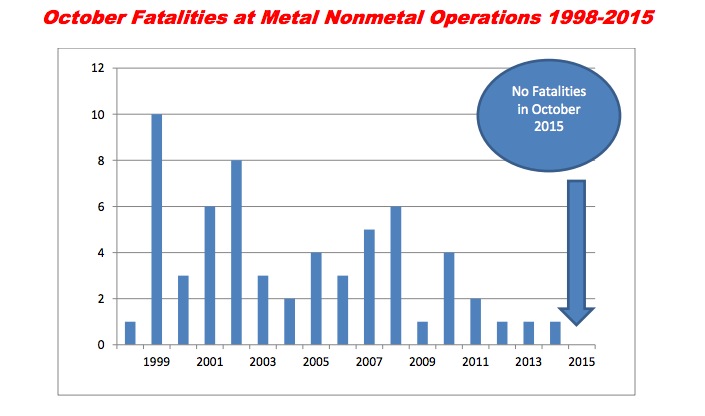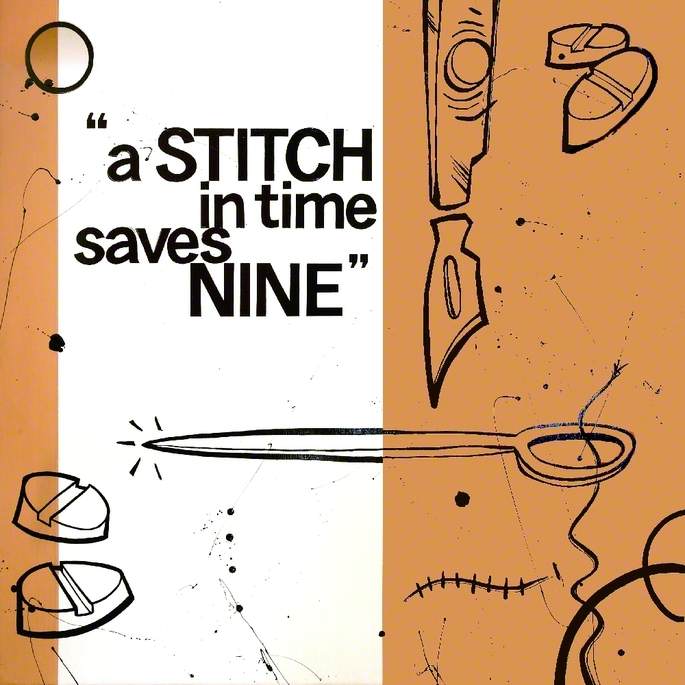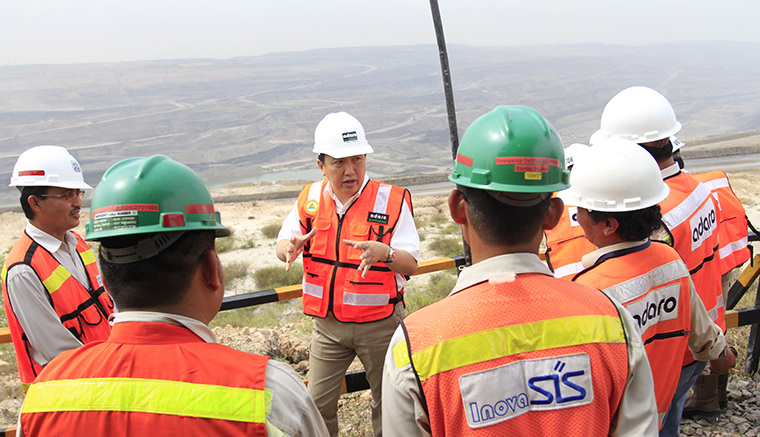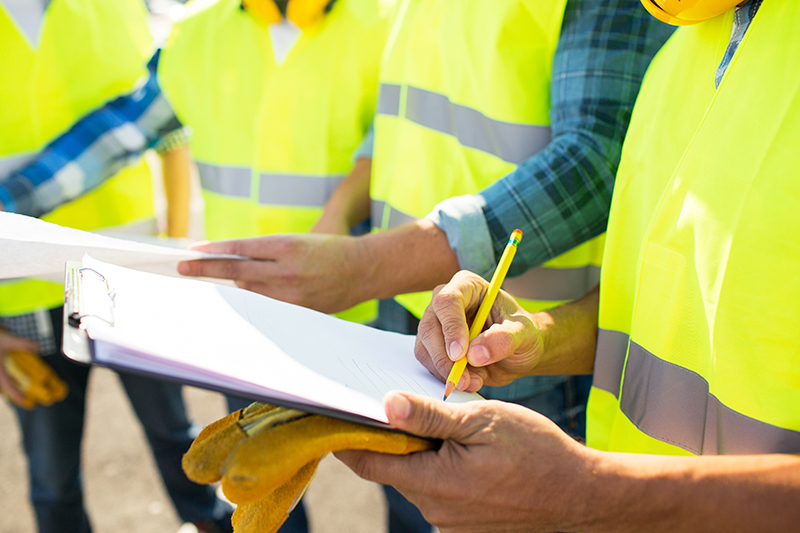October is Mining’s Deadliest Month
Updated on October 20, 2016 by Sales Team
3 Mine Safety Tips for Changing of Seasons
I think you’ll agree with me when I say:
Mine safety is a constant work in progress.
Sure everyone buys in during training and safety events, that’s good. But the true test of a safety culture is when your team needs to hit a deadline during the most dangerous month of the year. As MSHA reminds us, “October historically ranks as the deadliest month in metal and nonmetal.”
And in today’s post, I’m going to show you 3 hidden dangers that could impact your company’s safety this fall.
Changing Season Dangers – Don’t Let One Mistake End a Life
MSHA’s yearly reminder highlighted the “need for the entire mining community to refocus efforts on preventing these tragedies.”
Unfortunately, the letter didn’t give any specifics. I was hoping it would include actionable safety steps for companies.
Well, it looks like we’re going to do this ourselves. I spoke with mines safety expert and former MSHA Inspector, Kim Redding. During our call, Kim discussed some unique reasons the change of seasons is so dangerous and some simple ways you can avoid those dangers.
The most obvious danger during changing seasons is from the weather. Most of us know that transitioning weather patterns and added moisture cause all kinds of issues on mine sites. I won’t get into the physical dangers because I’ve discussed them extensively in a previous article.

3 Dangers of Changing Seasons You Might Not Consider and What To Do About Them
This article takes a look at dangers you might not see; dangers hidden in your co-workers’ heads.
Mental lapses can be just as deadly as the machines you work with.
1. Rushing Workers Under a Deadline
“One of the biggest reasons for accidents during the fall is rushing to get projects done,” Kim said.
Companies and workers are under 3 time constraints at this time of year: deteriorating weather, less daylight, and looming deadlines.
As summer turns into fall, weather deteriorates and the days get shorter. Bad weather and less sunlight makes working conditions much more difficult. But projects still need to get finished.
On top of that, many companies are under contractual deadlines.
“Let’s use road-paving projects as an example,” Kim continued. “Those jobs have to get done before it gets too cold to pave. I have to lot the companies I get fined daily for every day they don’t meet their deadline; big fines that are written into the contract.
Now, machine breakdowns are normal throughout the year. But if you have one more breakdown than you expected, all of a sudden you’re paying to pave the road.”
Who wouldn’t be racing to finish a project under that kind of pressure? Workers are preoccupied, just trying to take care of everything as fast as they can.
But that’s when accidents happen.
Prevent Accidents With A Simple Shift In Mindset
Notice when you or your coworkers are rushing and call it out. Never sacrifice safety for speed. You can work quickly without rushing.
Remember “The Tortoise and the Hare”? Your Grandmother saying “A stitch in time saves nine.”
There’s a reason that moral has been around for ages. Sometimes you need to slow down to go fast.

If you need to finish a job quickly, an accident or breakdown will only make everything take longer. (Not to mention the potential for tragedy that would be an injury or death)
If you’ve had a lot of lost time to breakdowns this year, you may want to look at your pre-op exams. Spotting damage before it gets worse can save you a lot of time and money in repairs. Investing a bit of time in retraining your crew can pay off big.
Simple? Yes. Does everyone do it? Unfortunately, no.
When we get busy it feels like we don’t have time for preventative maintenance. It’s human nature. But that’s when you need preventative maintenance matters most. Accidents, injuries, and broken equipment have a much higher cost than a couple extra minutes for a thorough pre-op.
What should you look for in a pre-op?
That will depend on your job and the machinery you’re using. But Kim’s free Pre-Operational Exam template is a great place to start.
Get a free mobile equipment pre-operation checklist from a former MSHA inspector
2. Distraction Leads to Danger
The change of seasons brings distractions at home too.
Kim said “I see it when I’m training. I’ll ask guys what do you think takes your mind from the job?’ And the most common reasons I hear are:
- All the things I need to finish before winter at the job and at my house
- The holidays are coming up and I need to start planning trips and thinking about presents
- It’s hunting season
Kim continued, “through interviewing workers I find things they say takes their mind off the job and managers at mines can too. External distractions may not be something managers take into account but you need to.”
Proactively Fight Distraction
The best way to fight distraction is to openly discuss it. Co-workers should be accountable for themselves and each other.
Notice if your mind starts to wander. What’s causing you to lose focus? Acknowledge the distraction then refocus on the job.
Keep an eye out for your co-workers. Do they seem engaged? Do you need to tell them something a few times? Call attention to it.

If someone isn’t paying attention during a task, don’t start until you get their attention.
Simple stuff, but it could save a life.
3. Unfamiliarity or Uncertainty With Yearly Tasks
Here’s the deal:
A job’s risk dramatically increases when workers are unsure or unprepared for the task they’re performing.
Closing or preparing a mine for winter only happens once a year. While workers may have been trained on a task or procedure, training fades over time without repetition.
Workers complete mine closing tasks far less often than their day-to-day jobs, leading to unfamiliarity.
Unfamiliar Tasks Are New Tasks
Completing yearly tasks has killed or injured a lot of experienced workers over the years. You can do the same job once a year for 15 years and still get tripped up. There’s just too much lag time. Not to mention the small changes from year to year that always affect jobs.
That’s why you should always approach a yearly or unfamiliar task as a new task.
Research the task, discuss it, and plan it out before any work starts.
Your team needs to know the plan and their role within it. Everyone must be able to follow the plan throughout the job.
To recap, you can dramatically improve mine safety by highlighting 3 fundamental practices
- Pre-Operational Exams can – and do – save lives
- Proactively Fight Distraction and Rushing
- Discuss and Thoroughly Plan All Intermittent Tasks

